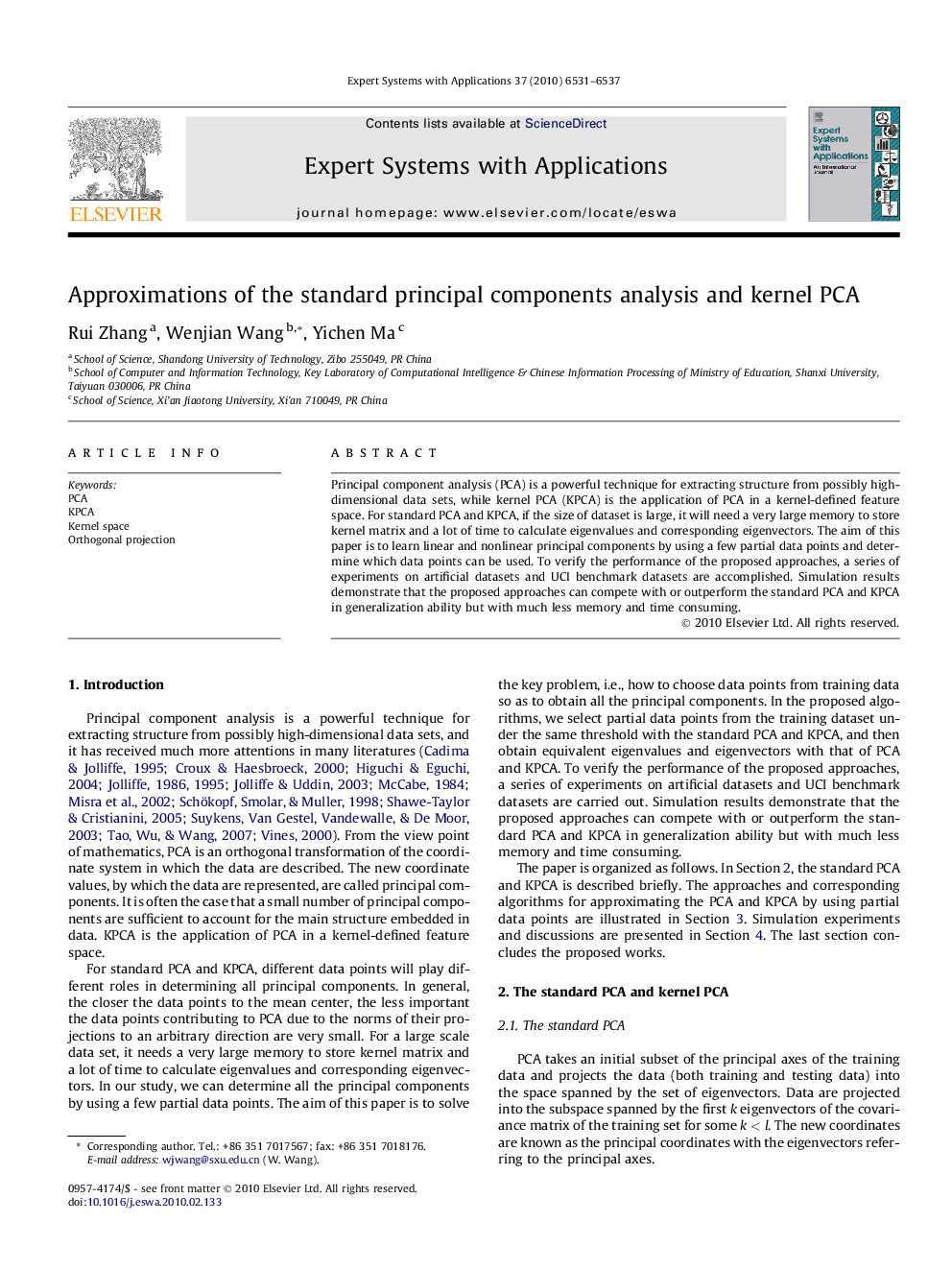| Article ID | Journal | Published Year | Pages | File Type |
|---|---|---|---|---|
| 383852 | Expert Systems with Applications | 2010 | 7 Pages |
Principal component analysis (PCA) is a powerful technique for extracting structure from possibly high-dimensional data sets, while kernel PCA (KPCA) is the application of PCA in a kernel-defined feature space. For standard PCA and KPCA, if the size of dataset is large, it will need a very large memory to store kernel matrix and a lot of time to calculate eigenvalues and corresponding eigenvectors. The aim of this paper is to learn linear and nonlinear principal components by using a few partial data points and determine which data points can be used. To verify the performance of the proposed approaches, a series of experiments on artificial datasets and UCI benchmark datasets are accomplished. Simulation results demonstrate that the proposed approaches can compete with or outperform the standard PCA and KPCA in generalization ability but with much less memory and time consuming.
